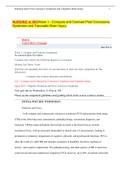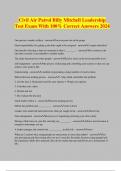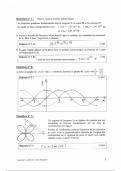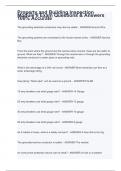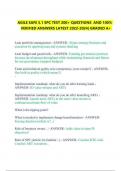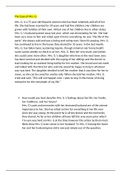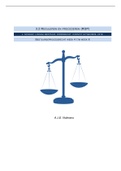NURSING nr 603Week 1 - Compare and Contrast Post Concussive
Syndrome and Traumatic Brain Injury.
Rubric
Course Hero 1 Example
due Nov 4
Week 1: Compare and Contrast Assignment
No unread replies.No replies.
Compare and contrast the following diagnoses as assigned:
Student Last Name -Topic
(Find the corresponding first letter of your last name to find your topic assignment for this
discussion)
- Compare and Contrast Dementia and Delirium
J-Q = Compare and Contrast Post Concussive Syndrome and Traumatic Brain
Injury R-Z = Migraine Headache and Post Concussive Syndrome
First post due by Wednesday, 11:59 p.m. MT
Please see the assignment guidelines and grading rubric in the course resource section.
INITIAL POST DUE WEDNESDAY:
Professor and Class,
I will compare and contrast post concussive syndrome (PCS) and traumatic brain injury
(TBI) in the following areas: presentation, pathophysiology, assessment, diagnosis, and
treatment. TBI has many definitions that include an insult to the brain from an external
mechanical force, with an associated diminished or altered state of consciousness, leading to
permanent or temporary impairment of cognitive, physical, and psychosocial functions. PCS is
often the result of a mild TBI and includes symptoms of headache, dizziness, agitation or
anxiety, and cognitive impairment. The pathophysiology and other aspects of TBI is much less
controversial and more understood compared to PCS; however, up to 80% of patients with mild
,Running head: Post Concussive Syndrome and Traumatic Brain Injury 2
to moderate TBI will experience some PCS.
Presentation
, Post Concussive Syndrome and Traumatic Brain Injury 3
Traumatic brain injury (TBI)
• Lacerations
• Hematomas
• Fractures
• Altered or decreased level of consciousness
• Intoxication from alcohol
Post concussive syndrome (PCS)
• Sometimes there is a brief loss of consciousness
• Patients with PCS will frequently tell bystanders that they are ok right after
impact but others will notice mild changes in behavior.
• Irritability, sleeplessness, depression, and malaise can persist for months after
the injury.
Pathophysiology
Traumatic brain injury (TBI)
• A brain impact causes glutamate to be released which then causes potassium to leave
the cells, leaving the neurons depolarized. This can result in loss of consciousness
(Algattas & Huang, 2013).
Post concussive syndrome (PCS)
• PCS is a neurochemical and metabolic cascade that occurs after shear forces with
a TBI. In order to get the potassium back in so the neurons can function, ATP is
used to power the sodium potassium pumps. This requires a tremendous amount
of energy, 200 times the normal rate, and tires the brain out. Sugar is the main
source of energy for the brain but it is not used properly in this depolarized state
so anerobic metabolism happens with resulting lactic acid accumulation. This
causes the neurons to be dysfunctional, not ischemic or dead, just dysfunctional.
At this time adenosine is released and the brain is depressed showing cognitive,

